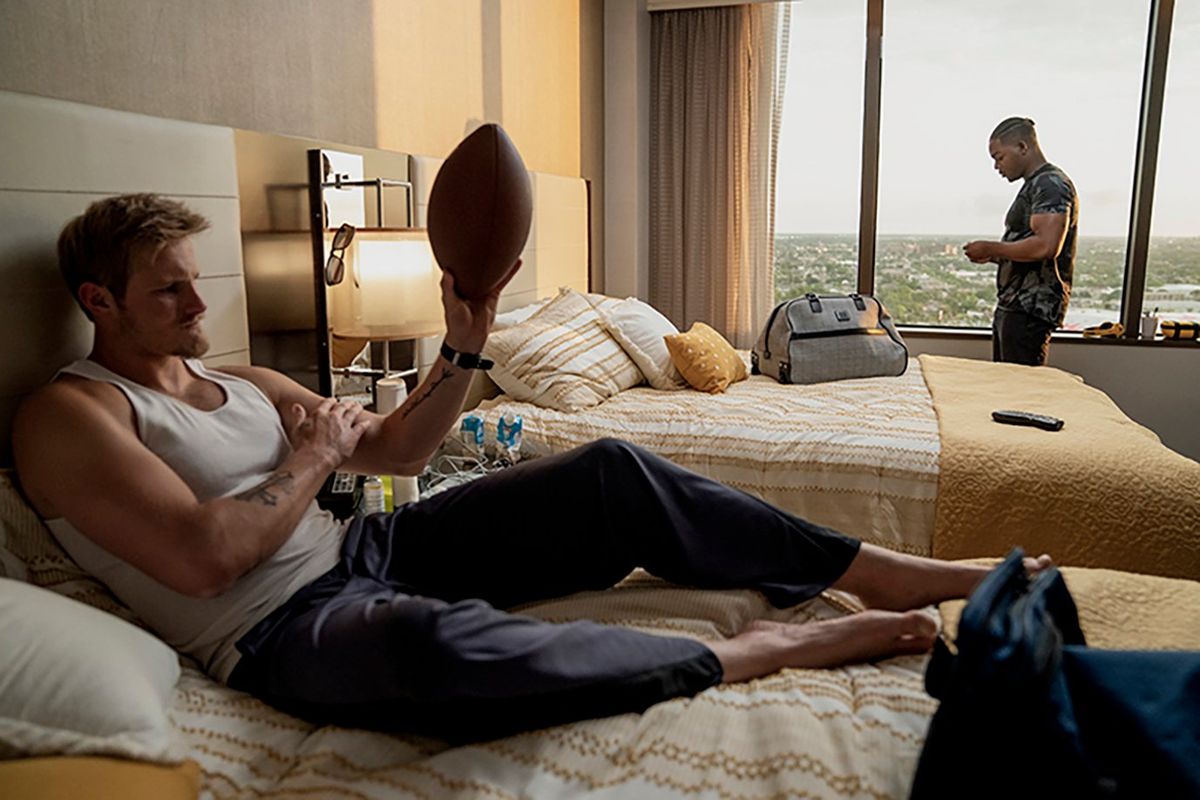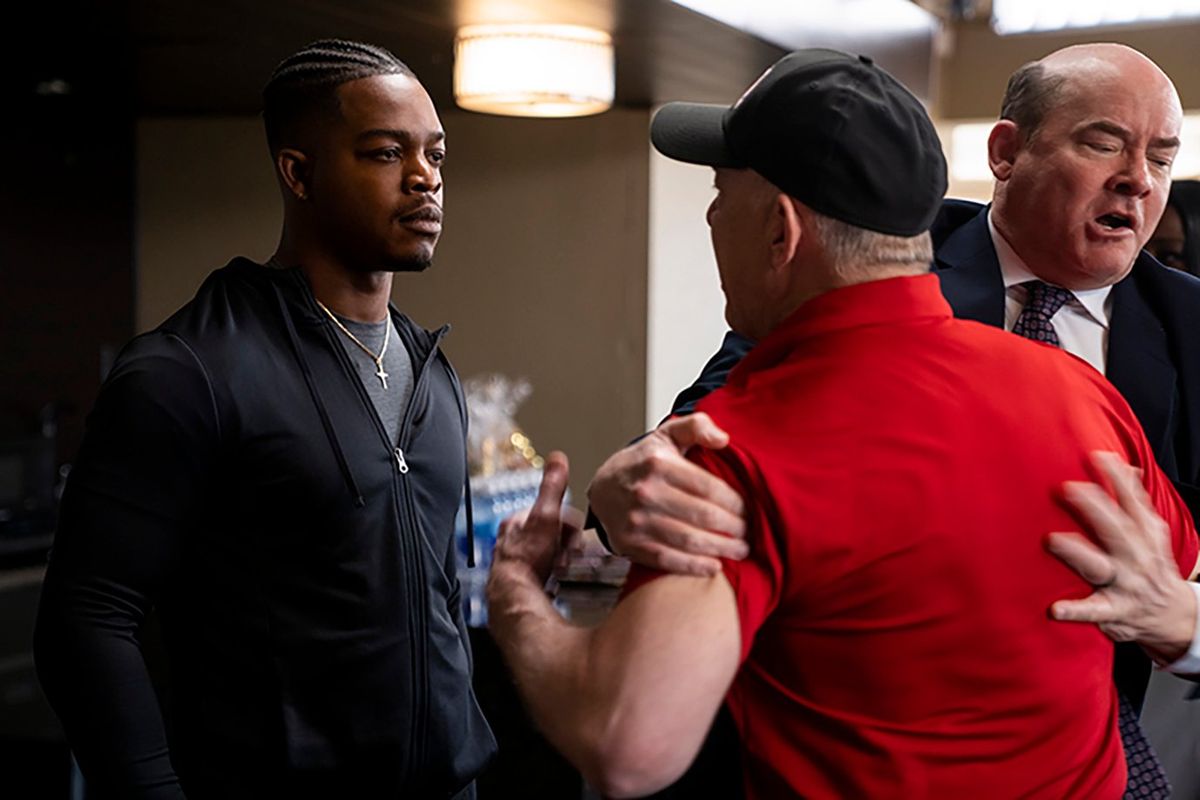Review: ‘National Champions’ scores a point by taking on the NCAA, but loses in the end
Alexander Ludwig and Stephan James in “National Champions.” (Scott Garfield/STX Films)
“National Champions,” an admirably of-the-moment thought experiment that considers what would happen if a Heisman Trophy-winning college quarterback used a national title game boycott to shake the foundations of amateur athletics, boasts a deep bench of actors. But like many a stacked squad before it, this team spends too much time sharing the ball to properly cash in on its potential.
Directed by Ric Roman Waugh (“Greenland”) and featuring a script adapted by Adam Mervis (“21 Bridges”) from his own stage play, the film ostensibly uses the sprawling cast of characters to empathetically examine how such a disruption would play out from all angles. As an attempt to expose college athletics for what it is – a laughably lucrative hierarchy that relies on free labor by student-athletes to line the pockets of coaches, commissioners and other bigwigs – “National Champions” gets a notch in the win column.
Yet, with so many power players and crisscrossing subplots, the film gets lost in the long hallways of the Hyatt hotel where most of the action takes place in the shadow of the New Orleans Superdome. Although Mervis has a sharp understanding of college football and the power structures that prop it up, his playbook of plot devices too often leans on gimmicky twists to propel the narrative: a lazy love affair; a conveniently covered-up crime; and a tragedy that drops out of nowhere.
As LeMarcus James, the blue-chip NFL prospect who risks his draft status by leading the revolt against the NCAA, the excellent Stephan James simmers with understated intensity. J.K. Simmons plays his coach at a fictional Missouri university; he sympathizes with the quarterback’s cause, but not enough to join it. A father figure with a short fuse and a penchant for profanity, it’s the type of role Simmons can play in his sleep, though even he can’t salvage an outlandishly unearned turn halfway through the film.
Then there’s Jeffrey Donovan as a quietly conniving NCAA executive, and Uzo Aduba – giving her all in a thankless role – as his cutthroat fixer. Tim Blake Nelson plays a booster with outsize influence. Lil Rel Howery is the defensive coordinator with a conflicted conscious. As James’s teammate and cohort in the boycott, Alexander Ludwig paints a sympathetic picture of a college stalwart with no future in the sport. Executive producer and Seattle Seahawks star Russell Wilson cameos as himself, as do Malcolm Jenkins of the New Orleans Saints and sports media personalities Steve Levy, Mike Greenberg and Jemele Hill.
But the most superfluous plotline is reserved for Kristin Chenoweth as the coach’s disillusioned wife, who is cheating on him with a professor played by Timothy Olyphant. For a film with its fair share of rote dialogue, Chenoweth gets saddled with the biggest eye-roller of them all: “I need to find myself again,” she tells her workaholic husband. “I need me time, not you time.”
By setting the film at the College Football Playoff championship game (in real life, set for Indianapolis next month), and making repeated references to the new NCAA policy that allows players to monetize their name, image and likeness, “National Champions” offers surprising verisimilitude. But Mervis’ script fumbles its attempt to acknowledge the pandemic: By positing the idea that James’ character was responsible for a recent coronavirus outbreak on campus, the movie concedes that it takes place in a COVID-19 world, raising the distracting question of why there’s not a mask in sight.
Waugh, a former stuntman, is confident enough in the film’s chamber-piece trappings. For a football movie that features essentially no football, and in fact rarely leaves its nondescript hotel setting, “National Champions” still achieves a sense of scale by shrewdly lingering on the Superdome’s looming grandiosity. Jonathan Sanford’s swelling score, filled with unexpected instrumentation, also amplifies the drama.
If you’re looking for a better sports movie that doesn’t show any actual sports – one that also deals with players reclaiming control of their game from the powers that be – try “High Flying Bird.” That 2019 gem from Steven Soderbergh, which stars André Holland as an agent navigating an NBA lockout, uses more incisive storytelling and a leaner running time to start a similar discussion. When it comes to this subgenre, “National Champions” has to settle for second place.

